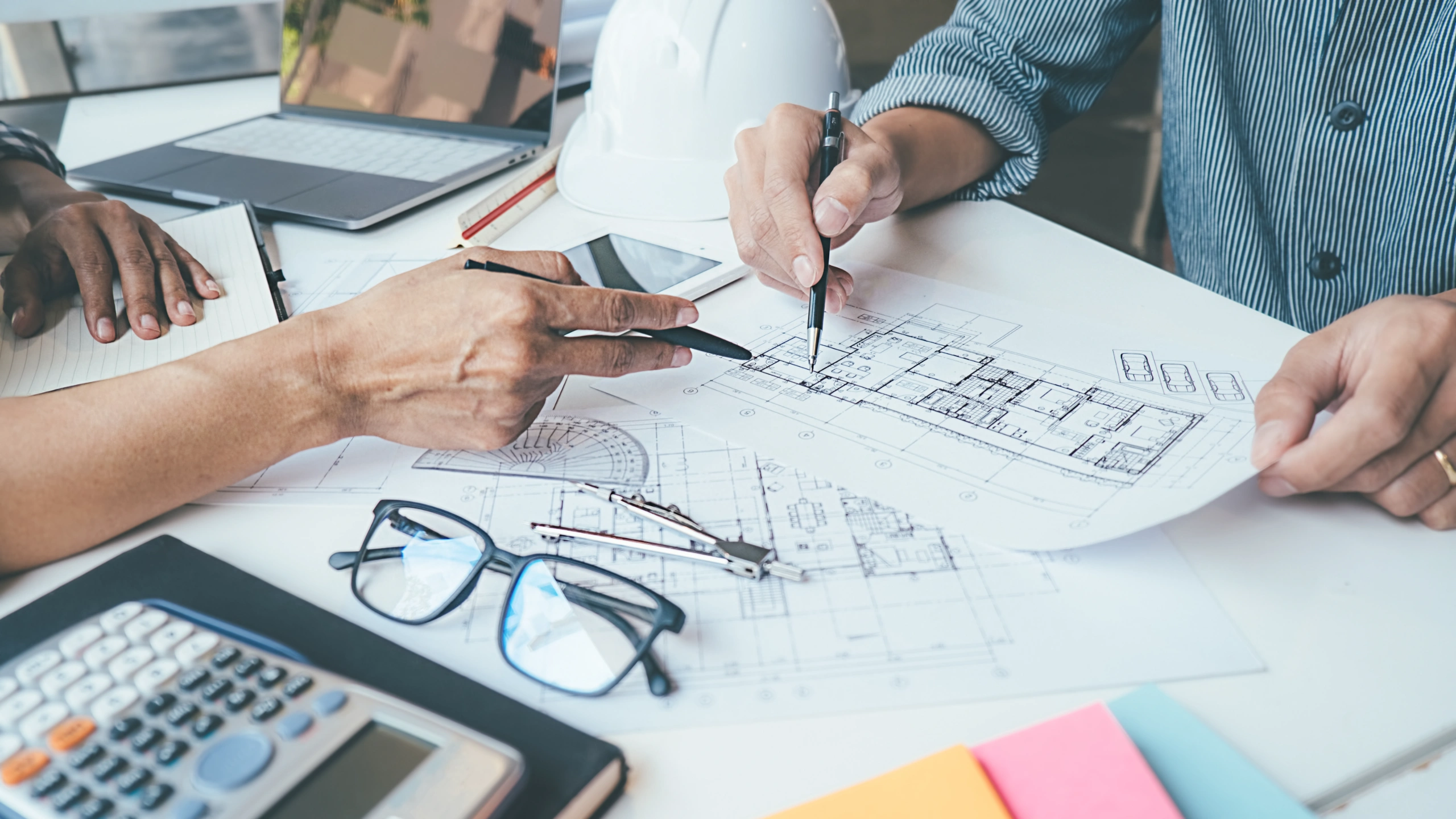Structural & MEP Engineering
Technical engineering support for complex, aquatic creations.
Streamlined Engineering Services
Our structural and MEP engineering services are for professional architects, developers and contractors who want to transform creative designs into functioning projects.
We offer comprehensive, end-to-end engineering services, ensuring designs are developed with complete precision and in line with relevant safety standards.

Engineering Services
Our two engineering services go hand-in-hand for pool builds.

Structural Engineering
We help designers and developers bring complex aquatic plans to life with structural engineering support. From considering water weight and soil pressure to recommending construction materials, our service guarantees the pool’s structural integrity and safety.

MEP Engineering
MEP engineering looks at the mechanical, electrical and plumbing elements of a pool. This includes features like heating, drainage, and lighting. MEP engineering is essential for ensuring beautiful designs are not flawed by poor ventilation, inadequate overflow measures or lacklustre lighting.
Gallery














What Set Our Services Apart
Here’s why choosing Smart Aquatics is the best decision for your project:
Creative design
Unique, inspiring concepts tailored to your vision
Expert craftsmanship
Attention to detail in every construction
Seamless management
Smooth, hassle-free project execution
Innovative engineering
Advanced and reliable solutions
Sustainable practices
Eco-friendly designs that last
Client collaboration
Personalized service every step of the way
Engineering Process
Our five-step engineering process supports you from hand-drawn designs through to 3D models and the final build.

(Schematic Design Phase)
The first step is a comprehensive review of the existing design, which is usually provided as part of a 25% schematic design set. We will collaborate with architects and relevant professionals to define critical elements like the vessel type, equipment locations, and sizing of key components. We also assess the complexity of the structure, to ensure everything is planned to fit as intended.

Next is the in-depth development of the design. This includes integrating detailed structural and MEP information. Coordination with other contractors — such as housing engineers — is essential at this point, to prevent any conflicts between systems or structural elements. This phase focuses on fully realizing the technical components of the design, ensuring a smooth transition to the construction phase.

(Permit Set)
Next, we create a complete documentation set, which covers every detail required for construction. We do not handle the submission of permits, but we do prepare designs to be permit-ready. All of our work is designed to be compliant with relevant codes and regulations. This final set of technical drawings contains all the details needed for construction.

Following permit submission, we are there to support you with any revisions or comments. We can address comments promptly, ensuring necessary changes are implemented so your project can continue without delay. Our team will work closely with all stakeholders, to help smoothen the process of permit issuance.

As part of our engineering service, we also provide detailed construction cost budget analysis, based on the finalized design. This analysis offers you complete transparency. You will understand all of the costs involved in the construction, helping you plan and budget accordingly.
Ready to Dive In?
Frequently Asked Questions
What types of construction drawings are included in your engineering services?
Our engineering services include comprehensive sets of structural, mechanical, electrical, and plumbing (MEP) drawings. These drawings are critical for ensuring that all design elements are properly integrated and that the project adheres to relevant codes and standards. Our structural drawings detail load-bearing components and connections, while MEP drawings cover everything from HVAC systems to electrical layouts, ensuring a fullycoordinated design.
How do you coordinate construction drawings with architectural plans?
We work closely with architects and landscape architects to ensure seamless integration of our construction drawings with architectural plans. Using Building Information Modeling (BIM) and advanced CAD tools, we align all structural and MEP elements with the architectural intent, reducing the risk of conflicts during construction and ensuring that the project vision is fully realized.
How do you handle revisions and updates to construction drawings during the project?
Revisions are managed efficiently using digital platforms such as Bluebeam Revu, which allows for real-time collaboration and markup. This ensures that any necessary adjustments are communicated swiftly to all stakeholders, minimizing delays. We maintain rigorous version control to ensure that the construction team always works with the most current and accurate drawings.
What role do as - built drawings play in your engineering services?
As-built drawings are a crucial part of our service, providing a final, accurate record of the project as constructed. These drawings capture all deviations from the original construction documents and are essential for future maintenance, renovations, or expansions. We ensure that as-built documentation is thorough and reflects the final built condition precisely.
How does your use of BIM enhance the construction drawing process ?
BIM allows us to create highly detailed 3D models that integrate all aspects of the building’s design, including structural, MEP, and architectural elements. This holistic approach facilitates better coordination and clash detection, significantly reducing the likelihood of errors during construction. For architects and landscape architects, this means greater confidence in the feasibility and precision of the design.
What should architects and landscape architects expect in terms of collaboration during the engineering phase?
Collaboration is central to our approach. We engage with the design team from the outset to understand the architectural vision and ensure that our engineering solutions support and enhance it. Regular coordination meetings and continuous feedback loops are integral to our process, ensuring that the final construction documents are fully aligned with the project’s design objectives.
